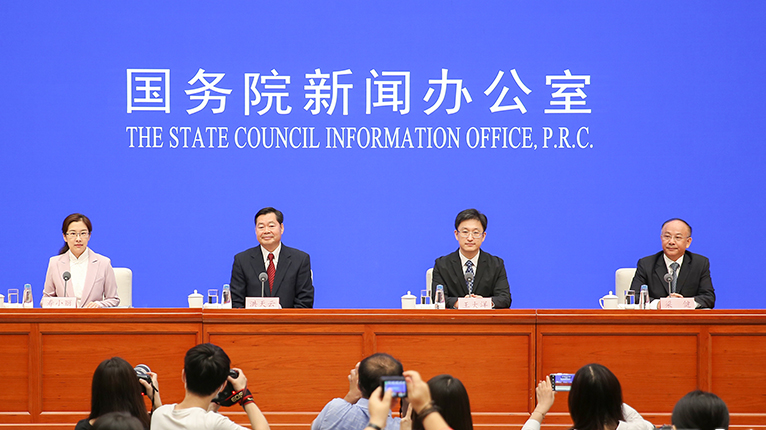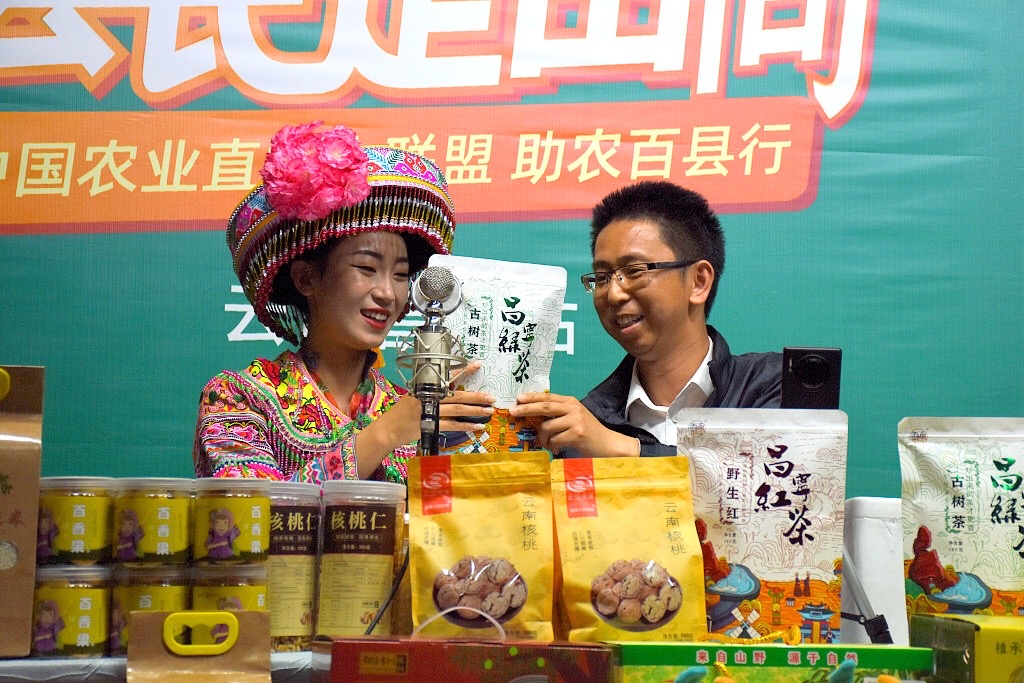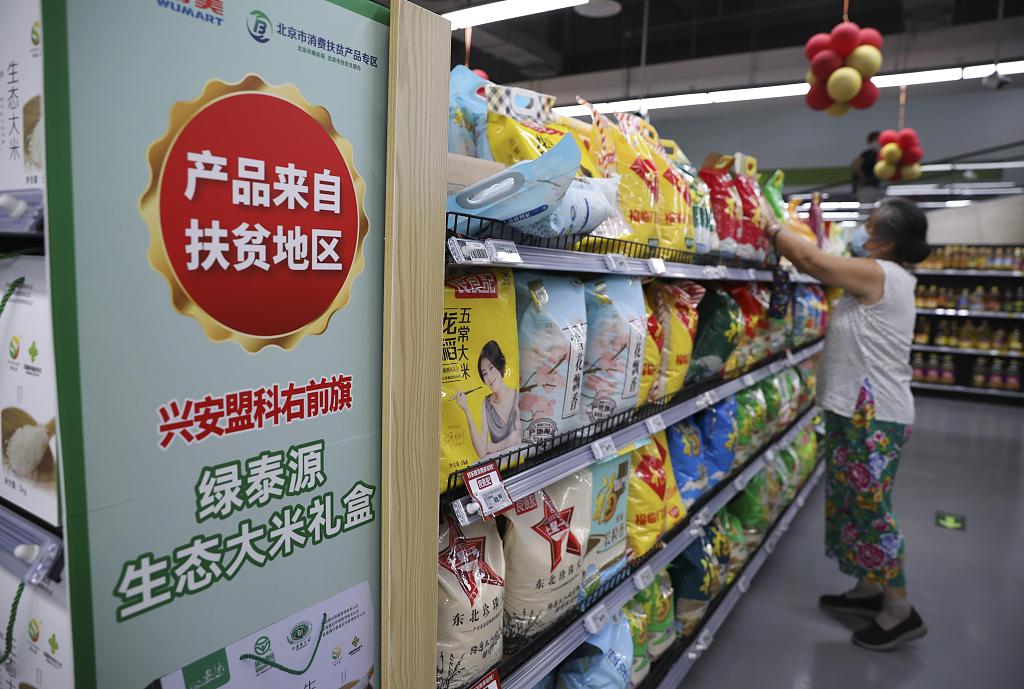
The State Council Information Office held a press conference, August 28, 2020. /State Council Information Office
The State Council Information Office held a press conference, August 28, 2020. /State Council Information Office
The promotion of agricultural products from poverty-stricken areas has become a trend among mayors and county heads this year as the coronavirus disrupted supply chains and trade channels for farm produce. However, the Leading Group Office of Poverty Alleviation and Development of the State Council on Friday reminded local governments they should still seek to balance costs and expenditure.
Hong Tianyun, deputy director of the Office, said that though it's good to expand selling channels for agricultural products to alleviate poverty, in some places, the final outcomes of livestreaming on which some local governments spent a lot of money to hire stars and internet celebrities to promote sales remains far below target levels.
"This is a lesson for us and it requires us to improve our work in the future," Hong told the news briefing.
Live: Briefing on consumption-driven poverty alleviation in China

Chen Zhenqiang, deputy county head, promotes agricultural products during a live broadcast, Baoshan City, Yunnan Province, China, May 7, 2020. /VCG
Chen Zhenqiang, deputy county head, promotes agricultural products during a live broadcast, Baoshan City, Yunnan Province, China, May 7, 2020. /VCG
Amid COVID-19, the Chinese government has taken various measures to facilitate the sales of agricultural products from poverty-stricken regions and stimulate the income growth of the poor population, including the campaign titled "poverty alleviation through consumption."
The campaign involves consumers and companies buying goods and services provided by people in poor areas as a way to increase their income and help lift them out of poverty.
Hong said the society does not lack love and sympathy towards poor families, but there is a lack of credible platforms and channels for them to sell their products. The campaign therefore functions as a bridge to unblock the channel between consumers and agricultural products.
Wang Dayang, an officer of the poverty alleviation leading group office, introduced reporters to certification procedures for poverty alleviation products.
He said companies can submit applications to county-level poverty alleviation departments and once the product is identified as poverty alleviation product, the local government will publish the result under supervision from municipal, provincial and national related departments. He added that 22 provinces in central and western areas have such certification bodies.

Agricultural products are seen on the shelves of a supermarket in Beijing, August 1, 2020. /VCG
Agricultural products are seen on the shelves of a supermarket in Beijing, August 1, 2020. /VCG
Wang also welcomes monitoring by the public, saying people can report violations through the hotline "12317" and file complaints via government websites.
He stated that once a product is certified, consumers can buy it in both online and physical stores. E-commerce platforms such as Pinduoduo, JD.com, Suning and Alibaba's Taobao all have specialized blocks for selling these products on their home pages, while physical stores, such as Yonghui Superstores, have set up the special sales zones.
In addition, companies, together with local governments, have also set up smart vending machines on the street, at shopping malls, subway stations and so on to sell products, including oranges, apples, tea leaves and coffee beans.
According to an official survey, provinces in developed eastern provinces have helped western provinces sell over 26.435 billion yuan (3.85 billion U.S. dollars) of certified goods since the beginning of the year.
Read more:
Digital techs give momentum to China's poverty alleviation drive amid COVID-19